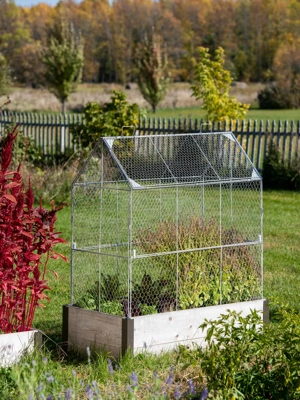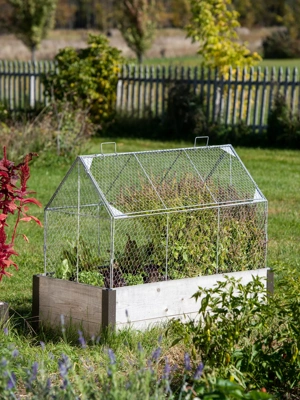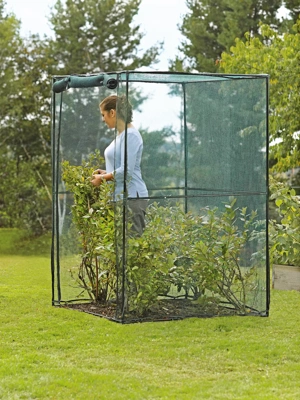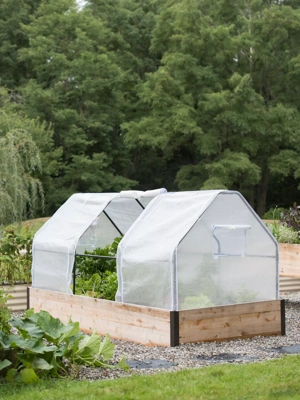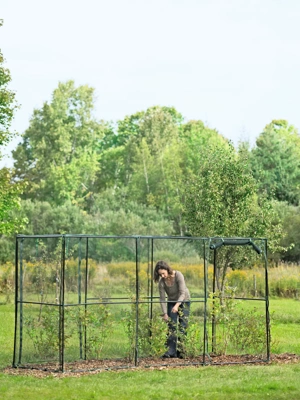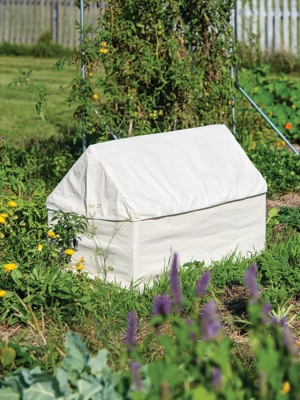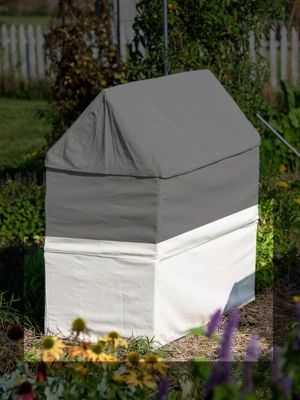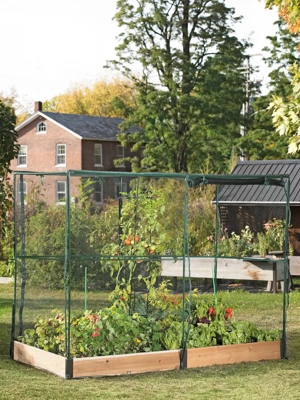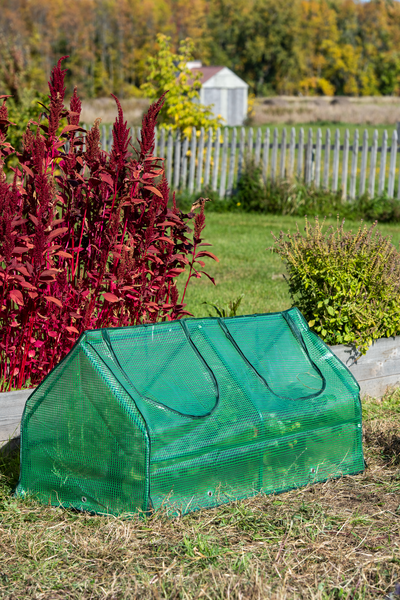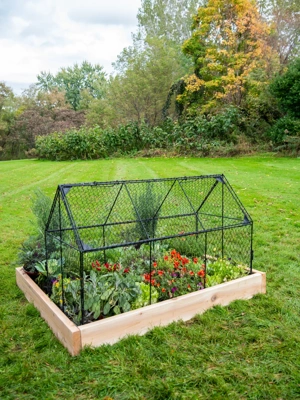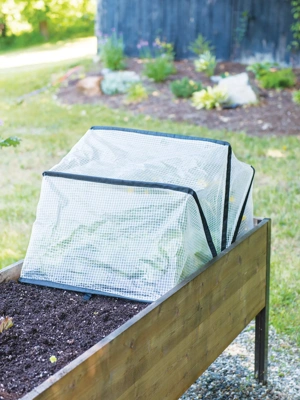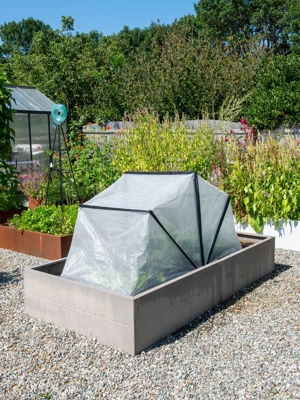Prepare Your Vegetable Garden for Winter with a Cover Crop
As we tuck our raised bed vegetable gardens in for the long winter, we’ve had to consider some ways to protect and improve our soil. We know that we can never leave the soil in our beds exposed to the elements, which can easily deplete nutrients. In the past, snow cover was a predictable insulator. But over the last several years, it has become clear that we can’t rely on the presence of Mother Nature’s favorite snuggly white blanket.
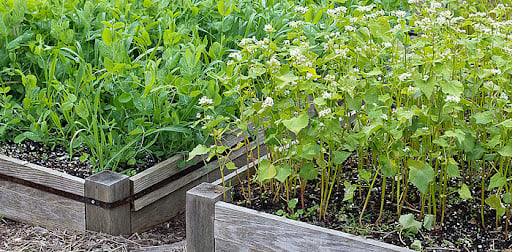
Related post: Weed and Feed with Cover Crops
Our first choice? Cover crops; more specifically, crops that will “winter kill” so we don’t have deep-rooted plants to contend with in the spring when we’re ready to plant. This year, we planted field peas and oats to cover our beds. They will die back when temperatures drop to about 15 degrees F., at which point they still serve as a protective layer of organic matter. In the spring, we can easily work the dead plants into the soil; as they decompose they improve soil health and release important plant nutrients.
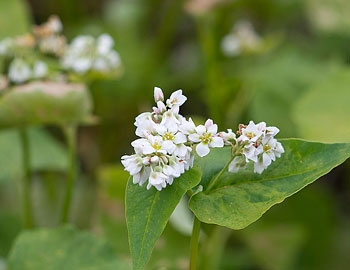 Our second choice? Cover crops that don’t winter kill, such as winter (cereal) rye. This option is a bit more work for the gardener because come spring, deep-rooted rye will need to be mowed (or string-trimmed) and then turned into the soil. Having done this many times in my home garden, I can tell you that it’s tough work. First you must wait until your soil is dry enough to be manipulated. Then, get ready for some muscle-building repetitions of intense shovel-work.Your soil will benefit, though, from the powerful shot of nutrients left behind by this “green manure” cover crop.
Our second choice? Cover crops that don’t winter kill, such as winter (cereal) rye. This option is a bit more work for the gardener because come spring, deep-rooted rye will need to be mowed (or string-trimmed) and then turned into the soil. Having done this many times in my home garden, I can tell you that it’s tough work. First you must wait until your soil is dry enough to be manipulated. Then, get ready for some muscle-building repetitions of intense shovel-work.Your soil will benefit, though, from the powerful shot of nutrients left behind by this “green manure” cover crop.
Where to buy? You are likely to find a selection of cover crops at your local garden center, usually sold by weight. One word of caution about cover cropping: scattering seeds all over your beds can attract birds and critters that eat the seeds. As a preventive measure, you can use garden fabric (row covers) until your seeds sprout.
Here are some benefits to cover cropping raised beds:
- Add organic matter
- Loosen compacted soil (especially deep-rooted varieties)
- Control erosion
NOTE: Buckwheat is a popular summer cover crop, which quickly adds nutrients back into the soil before planting for fall. Buckwheat dies back after a frost.
If you don’t have the time or the inclination to cover crop your beds, they will still benefit from being tucked in for winter. Consider adding a protective layer of straw or shredded leaves, secured in place with row covers and Earth Staples. You can even use black plastic.
Last updated: 08/13/2023
Print this Article:
Related items
Get the Dirt
Stay up to date on new articles and advice. Please fill out the information below.



